Review for Detroit: Become Human page 2
Game information
Adventure Gamers Awards
Let's get this out of the way first: I like David Cage and Quantic Dream. That's not to say they always make flawless, engaging games. Indeed, Cage is someone I admire more for his audacity than his ability to consistently deliver. Not surprisingly, like Heavy Rain and BEYOND: Two Souls before it, the cinematic Detroit: Become Human features some strong ideas, gorgeous graphics, and thrilling set pieces. And yet, in true David Cage style, he fumbles the ball in key places at times. But that's pretty much what fans have come to expect from the ambitious French developer. He's got his heart in the right place but seems to always fall short of the ultimate goal. Detroit is his team’s strongest effort to date, but at the same time, it's filled with enough rough edges to make it difficult to completely recommend to those seeking a well-rounded gaming – or even narrative – experience. Of course, those familiar with Quantic Dream's M.O. won't let the negatives outweigh the positives.
Set in the not-too-distant future of 2038, Detroit finds humanity facing several familiar issues. Global warming remains a constant problem, Russia-US relations are in the toilet, and unemployment continues to skyrocket. While this world looks very similar to our own, one enormous difference stands out: androids. Created by a company called CyberLife, these human-like creations have permeated many aspects of everyday life. In fact, androids have taken over a lot of jobs once held by humans, resulting in a major jump in unemployment. As a result, many people have a very poor opinion of their artificial counterparts and their place in society, resulting in some chilly relations between man and machine.
During the game, players will take control of three separate android characters: Connor, an investigator for CyberLife working with the police; Kara, a housekeeper; and Markus, a caregiver for an aging painter. Although their paths do intersect on occasion and influence events in the game world, the protagonists are on their own individual journeys, with each 10-15 minute vignette following one individual as they navigate life in Detroit.
As CyberLife’s most advanced model, Connor, alongside troubled detective Hank Anderson, is tasked with solving a number of violent incidents involving androids who have ignored their programming and embraced individuality – often in the form of murder. Kara, meanwhile, spends her days tending house for a drug-addicted single father who treats his daughter Alice like dirt. On the other end of the spectrum is Markus, who, after a series of unfortunate events, discovers a haven for rejected androids called Jericho, a place that allows him to take up the charge as the leader of the android rebellion.
You start with Connor, who must deal with a deviant (an android that has gone rogue) armed with a gun and holding a hostage on a rooftop. This segment gives you a firm grasp of what you'll have to face over the course of the story, from investigating crime scenes to navigating complex conversations with time constraints. Later, you'll encounter Quick Time Events (QTEs) that generally involve breathless pursuits or violent (and game-changing) life-or-death struggles. And if you screw up, you could watch your favorite character bite the dust. When that happens, the only way to bring that character back from the dead is to start the game over. If your reflexes are a little rusty, considering knocking that difficulty setting down a notch. The game doesn’t end if someone dies, but it definitely changes things up.
Unlike many games that present players with choices, the decisions you make in Detroit matter. During one early segment, you can completely ruin someone’s chance of survival depending on what choices you make. Some decisions will present you with entirely different scenarios, such as when the android population decides to stand up for themselves; how you influence the way they handle demands (calmly or violently) will affect which cut scenes you receive and how humans react to your characters. If you make the split-second decision to shoot someone in the back, you’ll have to pay for that choice down the road. Also, how you interact with others will either improve or damage your relationship with them. Rub an unstable android the wrong way, for example, and he might rat you out to the cops. These decisions feel weighty, and some of them can have a huge impact on how you progress.
If you've played a David Cage game before, Detroit’s very tactile gameplay is more of the same old thing. Want to open a door? You'll have to move the right thumbstick in a certain direction. Need Connor to analyze a piece of evidence? You might press one button, followed by another, then some twiddling of a thumbstick to identify a corpse or analyze a blood spatter. These mechanics work, for the most part, except when the game’s motion controls require you to physically thrust the entire gamepad in a particular direction. Even trying to open a rusty door on a cargo ship proved problematic when I needed to hold a button and move the controller at the same time (particularly with a cat snuggling in my lap). This resulted in unnecessary frustration and an abrupt stop in the narrative flow. Button combos are one thing, but requiring you to physically flick and jostle the controller during stressful situations (chase scene, fight sequence, etc.) is quite another matter. If you don't enjoy the complicated button-pressing, you can opt for the easier setting, which keeps things from becoming too intricate while decreasing the risk of accidentally getting yourself killed.
Should you screw something up, be it a dialogue choice or rooftop chase – and trust me, you probably will – Detroit offers pretty solid replayability, aided by some handy optional flowcharts via the main menu. Want to explore what happens when Kara decides to bunk down at a motel instead of an abandoned house during your second go-around? Follow the chart. Which decision made Connor's partner hate him so much? Follow the chart. While it does take some of the fun out of discovering these story beats in an organic way, it's a great tool for completionists when you’re done experimenting on your own. Having played this game once to the end, with several restarts along the way, I'm eager to go back again and explore some of the alternate routes that will no doubt result in some significant changes to the narrative. While I'm almost certain that I received the happy ending for each character, I'm still curious to see what happens when I take the other roads.
Though the dialogue can sometimes come across as cheesy and melodramatic, for the most part I cared about these characters. Kara, perhaps the most relatable of the bunch, always feels kind and genuine, though that’s likely due to the way I chose to play her (given some of the options available, I’m sure you can make her cruel and uncaring). It’s the same with Connor and Markus; while I had the chance to make them as cool as ice toward others, I opted to make them more humane. When given the opportunity, I chose to portray these androids as kind, considerate people. And when I diverted from that course, I felt guilty. After allowing Kara to do something devious in a convenience store, I wanted to turn back time and do things a different way. But Kara (and I) had to live with that decision for the rest of the game. In fact, these smaller, more intimate moments affected me more than the bigger picture.
Detroit does have a larger story to tell, and the parallels to the Civil Rights movement are noticeable right from the start. It's clear the developers wanted to spin a yarn with meaning, but the delivery doesn't always strike the right chord and the game doesn't dig very deep into the heavy issues it presents. Treating people like property and keeping them as slaves? Bad. Domestic violence and drug abuse? Bad. Bigotry? Bad. Why are these things bad? According to the game, they're bad because, well, they're bad things. Simple as that. There's no nuance to speak of, no deeper conversation other than what we're seeing on-screen. It's great that a video game is willing to tackle these things, but it needs to bite a little harder to make it worthwhile. If you want to speak to the impact of domestic abuse, don't drop that storyline as soon as the shock factor plays out. Explore how it affects people, as opposed to simply using it as a plot device.
On the technical front, Detroit does not disappoint. Aside from some problematic character animations – Markus suffers the most from stick-up-the-backside syndrome – everything looks fantastic. Thankfully, since you spend the majority of the game in conversation, the characters sport detailed expressions, and there’s never a moment when their dialogue doesn’t accurately reflect their moods. The environments, too, are lush and ripe for exploration. For example, delving into the depths of a ruined cargo ship is eerie and chilling, while roaming the city streets in search of graffiti allows you scour a smaller section of the sprawling metropolis. My only real complaint is the lack of a close-up camera. As someone who loves to look at set decorations in video games, I felt like I was missing some of the rich background details that help make this world so vibrant. Getting a closer look at the ruined attractions in the abandoned theme park, among many other points of interest, would have made my day.
Quantic Dream also nailed the sound design in making Detroit feel alive. Streets are teeming with random conversations, and the action sequences come packaged with a cinematic score that heightens the tension. Everything gels, even when the story itself threatens to derail the near-flawless presentation.
Vocal performances from the talented cast are solid and compelling, for the most part. Standouts include Bryan Dechart (Connor), Valorie Curry (Kara), Lance Henriksen (Carl Manfred), and Simbi Kali (Amanda). That said, it's Clancy Brown (Hank Anderson) who steals every scene. Although his character is the sort of grizzled cop fans of ‘90s cinema have seen time and time again, Brown brings enough to the table to make it feel fresh and interesting. On the flipside, Jesse Williams, who garnered acclaim for his role on Grey's Anatomy, delivers the weakest performance of the bunch. His turn as Markus never feels genuine, even when the script requires him to stand up for his fellow androids. I never bought Markus as a leader, which influenced how I handled his character. It's a shame, since Williams' character should have had the biggest impact on the story.
That really highlights both the primary accomplishment and the main problem with Detroit in a nutshell: it's the smaller moments that shine, while the bigger set pieces and dramatic moments fail to elicit more than a shrug as you head into the next sequence.
Although it once again falls short of achieving all the grandeur that David Cage and Quantic Dream set out to deliver, Detroit: Become Human is a frequently great but flawed experience, which is pretty much par for the course from this studio. The script, while goofy and a little stupid at times, provides enough characterization and depth that you end up caring about most of the cast. Had the writers eased up on some of the ham-fisted themes and dialed back a bit of the melodrama, Detroit could have had far more poignancy.
As it stands, this won’t be the interactive story experience that converts avid readers or film buffs to video games, particularly as it’s so light on actual gameplay. It's a valiant effort, for sure, and it's good that mainstream, big-budget games are beginning to tackle tougher issues. But instead of hitting the audience over the head with its message, a subtler approach was called for here. A little nuance goes a long way. Still, if you're willing to look beyond these narrative hiccups, you'll discover an aesthetically gorgeous, fascinating neo-noir adventure that takes more risks than most AAA games. It's not a masterpiece, but it's a solid exploration of humanity, its faults, and the little moments that make our existence worthwhile.



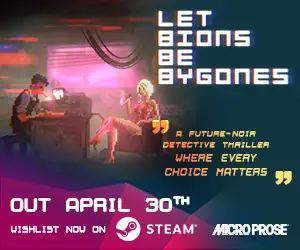
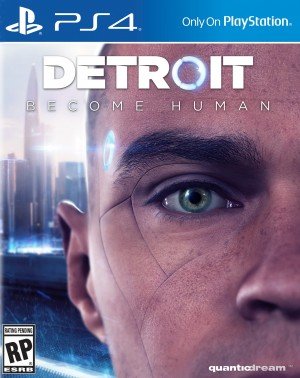
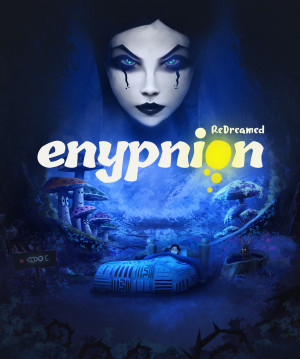













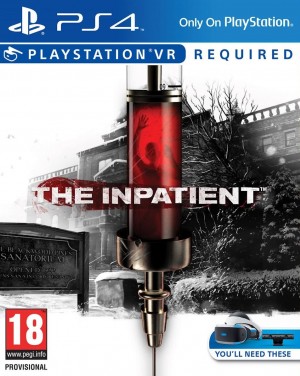
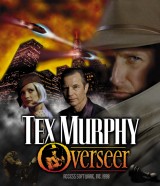




__small.jpg)





